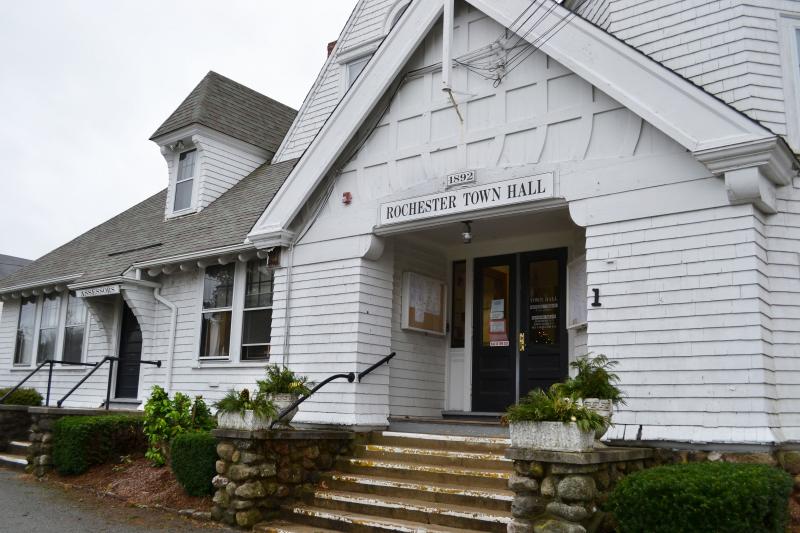Rochester Town Meeting set for June 8 with $19 million budget before voters
Town Meeting on Monday will act on a $19 million municipal budget recommended by Selectmen. Also, voters will weigh in on 25 agenda items regarding employee compensation, snow removal spending and new polling hours.
The Annual Town Meeting will take place at Rochester Memorial School, 16 Pine St., beginning at 7 p.m. A two-article Special Town Meeting precedes it at 6:45 a.m. A quorum of 100 is required to conduct business. All registered voters may participate at Town Meeting.
The $19,589,723 budget request for fiscal year 2016 is 2.9 percent more than this year’s spending. The increase is mostly due to contractual obligations and health insurance costs, which increased for the first time in three years.
“It’s a fairly unremarkable budget this year given our fiscal constraints,” Town Administrator Mike McCue said. “I am modestly optimistic about the coming years as some commercial and residential grow comes online.”
One agenda item seeks to change how often non-union, non-contract employees receive raises. Currently, they get a three percent raise each year pending a favorable performance review.
The raises stop once employees “max out” by reaching the highest rate allowed. Coupled with a cost of living raise, Selectmen Chair Rich Nunes said the board members are trying to be fiscally conservative.
“It’s basically a way to save money,” said Nunes. “Every year, some town employees get a five to six percent raise. This is a business decision by Selectmen to slow down the rate of step increases.”
The change would extend the amount of time an employee is eligible for a raise from one year, to two, and then three years, depending on the number of the step increase. Nunes said the bylaw is modeled after one used by the federal government.
Of the 15 employees covered under the bylaw, four would be affected by the change.
Highway Surveyor Jeff Eldridge opposed the bylaw saying those employees should receive raises as scheduled.
“I don’t think it’s right we single out those four people,” Eldridge said. Instead of approving the bylaw as written he suggested that it apply only to newly hired employees. Eldridge said an amendment to the bylaw proposed at Town Meeting could achieve that.
At Special Town Meeting, voters will be asked to transfer $85,000 from the town’s stabilization fund for snow and removal costs from this year’s epic winter.
McCue said $68,000 was originally budgeted, but that amount was soon spent. In total, it cost the town $153,000 for snow removal. The transfer would leave $1,152,680 in the stabilization account, otherwise known as a rainy day fund.
“The only realistic other option was to drastically reduce free cash,” McCue said about the decision. “However, that was needed to supplement both the FY 2016 budget and the few proposed spending articles.”
Should voters approve agenda item 16 the town’s polling hours for annual town elections would be reduced.
Instead of being open from 8 a.m. to 8 p.m., residents would have from noon to 8 p.m. to cast ballots. Members of the Finance Committee requested the change as a cost savings measure.
“Not a lot of people come in those first few hours,” Town Clerk Naida Parker said. By not hiring a police officer and election workers for the morning shift she estimated a few hundred dollars would be saved.
After months of discussion and debate, zoning officials hope voters will back a move that would change the town’s Limited Commercial District bylaw.
Located in the center of town, the district includes the Plumb Corner Mall and adjacent land as well as parcels on New Bedford Road, located across the street from the post office.
As a Zoning Bylaw Review Subcommittee member, Richard Cutler was on the panel that drafted changes to the existing bylaw.
The size of the district will remain the same. Cutler said the changes are designed to encourage: diverse housing options, pedestrian friendly features and mixed-use development.
New language in the bylaw would also establish guidelines in the district.
“This would make it clear to any developers as to what will be acceptable in town,” Cutler said. “Right now, it’s not that clear.”
Some of the specific changes would require developers to submit designs that reflect the town’s architectural character. Also, a site plan review by the Planning Board would be needed for mixed-use developments.














